Nostalgia on Tuesday: Grand revival
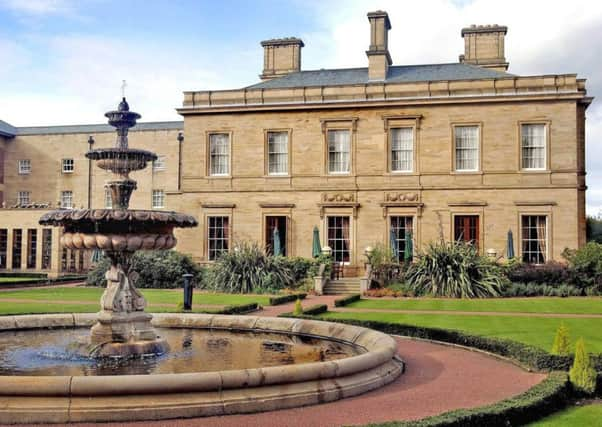

Such was the case with Oulton Hall, Leeds, which had stood derelict for a number of years prior to undergoing extensive renovation during the 1990s.
Francis Blayds is thought to have built a farmhouse on the present Oulton Hall site during the mid-18th century. This was developed a little later by John Blayds, a shalloon and tammy merchant.
Advertisement
Hide AdAdvertisement
Hide AdJohn Blayds died in 1804 and left his estate to business partner John Calverley on condition the latter changed his name to Blayds. John applied to have the common land around Oulton Hall enclosed through an Act of Parliament and was given Royal Assent in 1809. At the same time, Humphry Repton was employed to landscape the grounds.
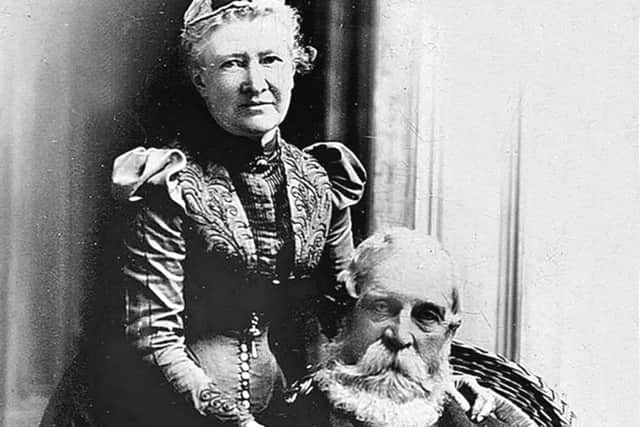

On February 24, 1827, the Yorkshire Gazette reported that John Blayds had died at an advanced age. The Oulton estate went to his eldest son, also called John, who in time reverted back to his father’s original name of Calverley. He employed Sidney Smirke to extend the house in 1839.
On August 3, 1850, there was a fire at the hall. A messenger was sent on horseback to summon the Leeds fire engines. Whilst the damage was estimated to be around £1,500, the property was amply insured.
At the time of the fire, alterations were being made at the rear of the house, where a new kitchen and some other rooms had been added.
Advertisement
Hide AdAdvertisement
Hide AdThe new additions adjoined a wing at the rear and it was in the roof of this area where the fire started. Plumbers had been carrying out repairs and had a fire on the roof for melting lead. It was thought that the intense heat from this fire had caused the dry timber to ignite.
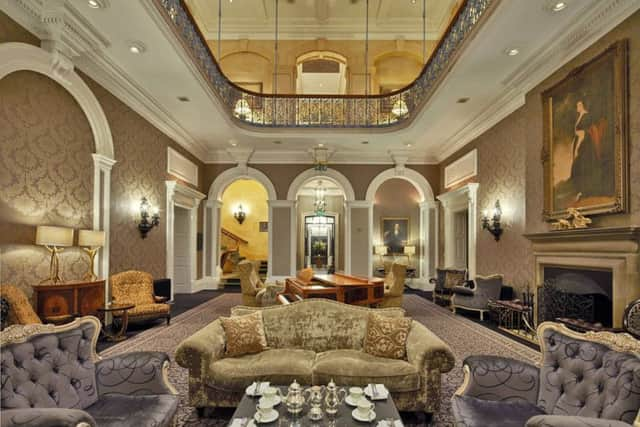

Supt James, of Leeds police, was present at the fire, with a number of policemen. They maintained order among the great crowd of people attracted to the incident.
The Leeds architects William Perkin and Elisha Blackhouse produced designs for reconstruction of Oulton Hall following the fire.
John Calverley died in 1868, his obituary in the Yorkshire Post on March 7 1868, reported that for upwards of 50 years he was a magistrate and deputy lieutenant for the West Riding. “He was an attached member of the Church of England, and in 1827 carried out his father’s intentions by erecting the beautiful church at Oulton,” said the newspaper.
Advertisement
Hide AdAdvertisement
Hide AdJohn Calverley’s son Edmund Calverley (b. 1826) succeeded his father. He became a magistrate and Deputy Lieutenant for the West Riding, and patron of two livings.
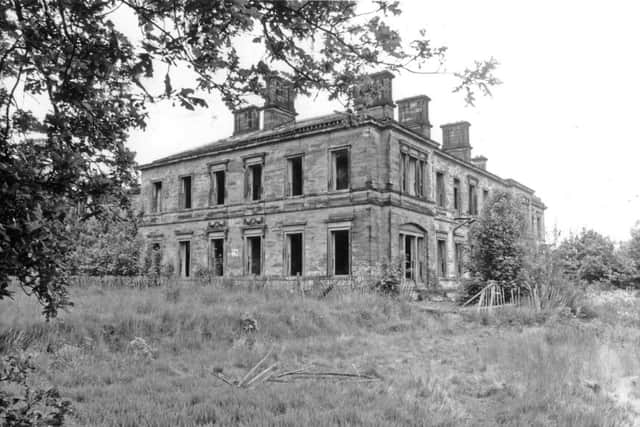

Edmund’s wife Isabella died in 1895 and he died in September 1897, the value of his personal estate being £150,288. The Hull Packet of September 17, 1897, reported: “He lived almost the life of a recluse. His prime concern was the welfare of the church which his grandfather had founded for the spiritual good of its people.”
His son John Selwin Calverley (b.1855) succeeded him. John was educated at Harrow, Trinity College and was called to the Bar in 1882 by the Inner Temple. He was captain in the 4th Battalion Essex Regiment and was well known in yachting circles as the winner of numerous prizes with the yawl yacht Brunhilde.
He died in December 1900 and was succeeded in the estate by his brother Captain Horace Walter Calverley (1862-1929) formerly of the 5th Dragoon Guards.
Advertisement
Hide AdAdvertisement
Hide AdOulton Hall became a convalescent home for wounded officers and also housed some Belgian refugees during the First World War.
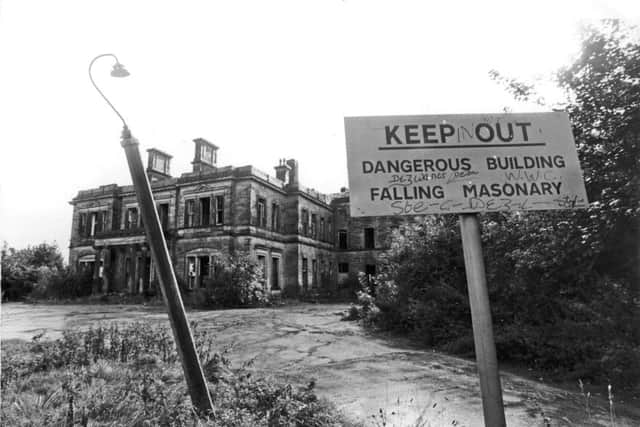

Under the heading ‘Shell Shock Officers’ Hospital at Oulton Hall’ the Yorkshire Post of November 20, 1918, gave details about the treatment given to officers “suffering from nerve strain”. A proportion of the 70 beds were reserved for officers transferred from various hospitals in the Northern Command; the remainder were for cases sent direct from clearing hospitals overseas. It was stated that Oulton Hall was “admirably adapted to the purpose of a hospital. The rooms are lofty, airy, well-lighted and well ventilated, most of them commanding a fine view of the extensive wooded park.”
A controversial decision to close the hospital by the Ministry of Pensions, removing the military patients elsewhere, was taken in 1925 despite it being the only neurological hospital in Yorkshire, Lancashire, Derbyshire and Cheshire. It was revealed Oulton Hall had been economical to run – the annual rent being £2 – but patient numbers had been dwindling.
Early in 1927, the hall was taken by West Riding County Council and opened in April 1928 as an institution “for the care and treatment of mental defectives”.
Advertisement
Hide AdAdvertisement
Hide AdThe obituary of Major Horace W. Calverley, who died aged 67 in September 1929, stated he had been in ill-health for several years and his condition compelled him to live abroad. Along with his wife he had taken over Down Hall, Essex, from his late uncle, Lord Rockwood. They had one daughter Mrs Joyce Furneaux.
The hall and grounds were acquired by West Yorkshire County Council in 1974 and abandoned in subsequent years until all that remained was a shell.
During 1991 De Vere Hotels boldly took on an ambitious restoration programme turning the old hall into a luxury hotel. Opening on June 7 1993, the building was extended and upgraded six years later. Oulton Hall was taken over by AHG (Alternative Hotel Group) in 2006, then Qhotels in 2014 and the real estate investment firm Aprirose in 2017.
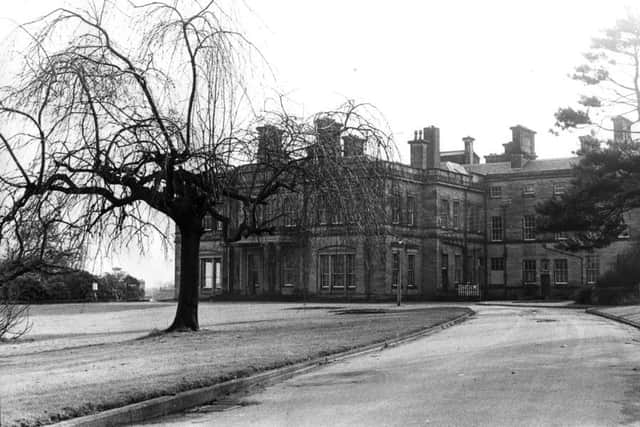

The Yorkshire Country House – A tour through the county’s grandest homes is available to order online at www.ypbookoffer.co.uk or call 01274 735056. £19.99 each. Buy two for £34.98. Includes UK delivery.